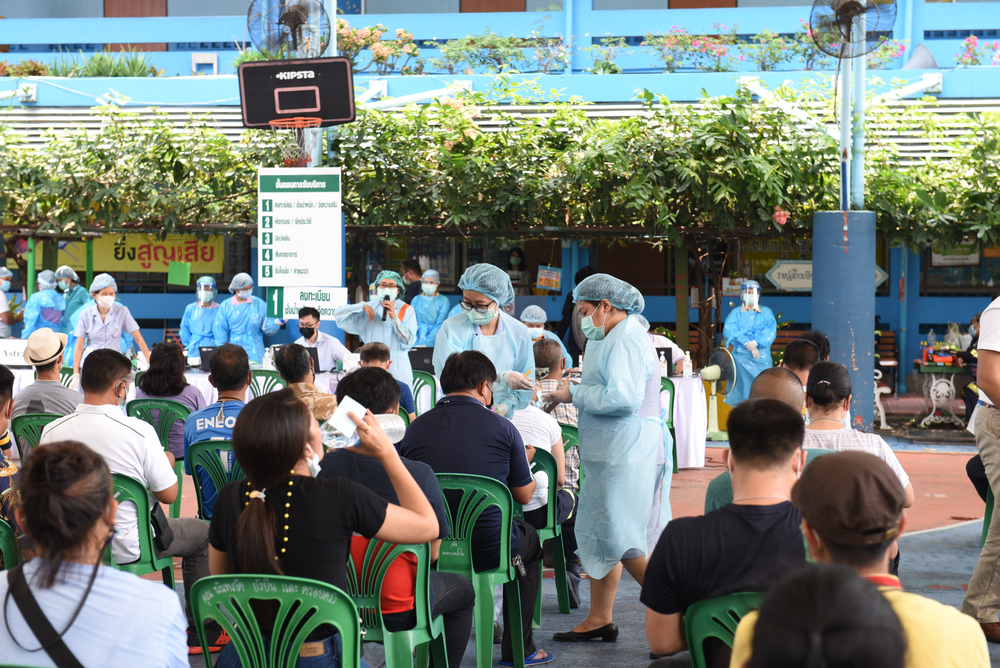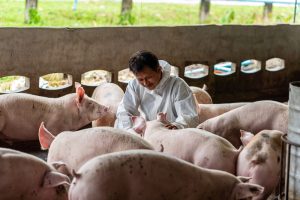A new mRNA COVID-19 vaccine, ChulaCov19, developed in Thailand, has shown promise in Phase I trials for its durability and ability to be stored at fridge temperatures for up to three months.
The development of a potentially more effective and locally-grown vaccine could have significant implications for vaccine distribution in low- and middle-income countries in the region, where storage and transport can be challenging.
ChulaCov19’s Development and Trials
Developed by Thai and international researchers, the ChulaCov19 vaccine has successfully passed Phase I trials with a group of 72 adults. The trial’s results, published in Nature Microbiology, show that the vaccine is safe, has mild side effects, and triggers COVID-19 antibodies. Researchers are currently testing ChulaCov19 in Phase II clinical trials on a larger group of people to assess its effectiveness in preventing COVID-19 infections or severe symptoms. If successful, the vaccine will proceed to Phase III clinical trials.
In November last year, the Thai cabinet approved 2.31 billion baht in funding to support the vaccine’s production. Deputy government spokeswoman Rachada Dhnadirek stated “The government wants Thailand to be a country capable of creating, conducting research and development and producing its vaccine, which is by its 10-year strategic plan to become become a medical hub (by 2026)”
Comparison to Pfizer and Moderna Vaccines
The Pfizer and Moderna mRNA vaccines have shorter storage times at fridge temperatures (2°C – 8°C), requiring 10 weeks and 30 days, respectively. For longer periods, they need storage temperatures below -15°C for Moderna and -60°C for Pfizer. However, ChulaCov19, on the other hand, has demonstrated stability at fridge temperatures for at least three months. This makes it a potentially more accessible vaccine distribution option in regions with limited cold storage infrastructure.
Medical Perspective
mRNA vaccines, like Pfizer’s and Moderna’s, have shown the highest efficacy among approved vaccines. ChulaCov19 uses the same basic structure as these vaccines, with some key differences. Firstly, the researchers use different lipids to create the nanoparticle capsules that encase the mRNA. Secondly, ChulaCov19 isn’t “prefusion stabilised,” a property that helps spike proteins properly take shape in the human body. Despite this, lab tests showed that the highest dose of ChulaCov19 (50 micrograms) produced more antibodies than the Pfizer vaccine. The vaccine also neutralised the Alpha, Beta, Gamma, and Delta variants of SARS-CoV-2 with similar efficacy. However, it produced fewer effective antibodies against the Omicron variant.
Conclusion
Finally, Thailand plans to pursue domestic production of the vaccine in the project’s next phase. Also, the authorities hope Thailand becomes a vaccine production hub. Therefore, more Thai people will have access to the vaccine.
The development of ChulaCov19 offers a potential solution for vaccine distribution challenges in low- and middle-income countries in Southeast Asia. This is because it can be stored at fridge temperatures for longer periods. Therefore, as the vaccine proceeds through clinical trials, it could play a crucial role in improving global access to effective COVID-19 vaccines and mitigating the pandemic’s impact in Asia and beyond.













